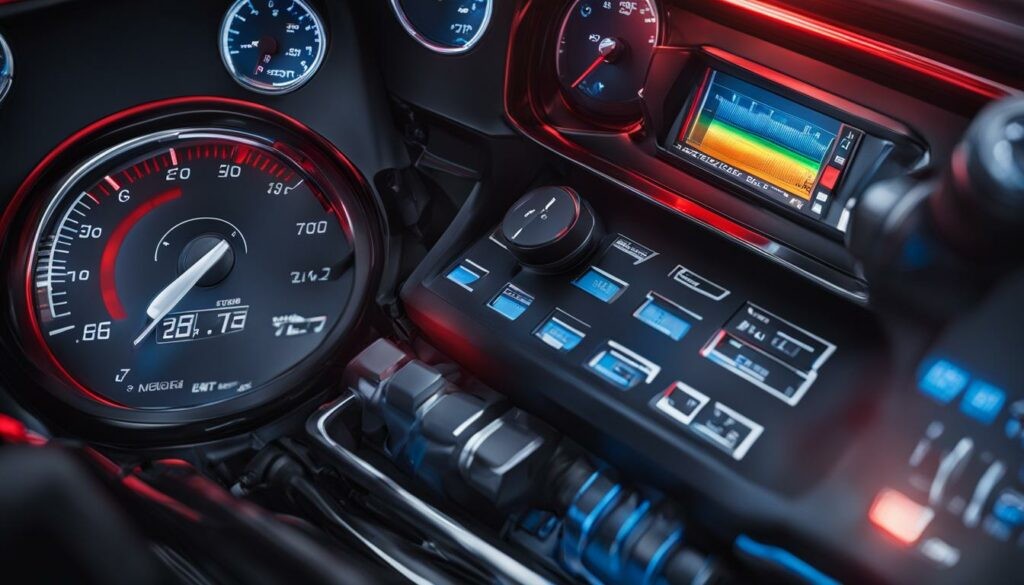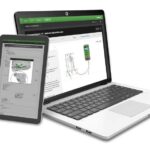The P0607 diagnostic trouble code in your Ford signifies a “Control Module Performance” issue. This means the Powertrain Control Module (PCM), your car’s central computer, has detected an internal malfunction. This article will delve into the P0607 code, outlining its causes, symptoms, diagnostic procedures, and potential solutions specifically for Ford vehicles.
The PCM constantly monitors and regulates various systems in your Ford, from engine timing to transmission shifting. When it detects an internal error within its own operation, it logs the P0607 code. This requires immediate attention as it can significantly impact your vehicle’s performance and drivability.
Common Causes of P0607 in Ford Vehicles
Several factors can trigger the P0607 code in a Ford. While the code primarily indicates a software-related problem within the PCM, underlying hardware issues can also be the culprit. Here are some common causes:
- Low Battery Voltage: A weak or failing battery can disrupt the PCM’s power supply, leading to operational errors.
- Faulty Alternator: A malfunctioning alternator can cause unstable voltage, similarly affecting the PCM’s performance.
- Wiring Issues: Damaged or corroded wiring in the PCM’s circuits can interrupt communication and trigger the code.
- PCM Software Corruption: Bugs or errors in the PCM’s software can lead to malfunctions and the P0607 code. Sometimes, a simple software update can resolve this.
- Faulty PCM: In some cases, the PCM itself may be defective and require replacement. This is usually a last resort after ruling out other potential causes.
Recognizing the Symptoms of P0607
The P0607 code often manifests through noticeable symptoms, indicating a problem with your Ford’s PCM. These can include:
- Check Engine Light: The illumination of the check engine light is the most common indicator.
- Limp Mode: Your Ford might enter a “limp mode” to prevent further damage, limiting engine power and speed.
- Rough Idling: The engine might idle erratically or stall.
- Poor Fuel Economy: You might notice a decrease in your vehicle’s fuel efficiency.
- Starting Problems: The engine might crank but fail to start, or it might be harder to start than usual.
- Transmission Issues: You might experience problems with shifting or erratic transmission behavior.
Diagnosing and Tuning Ford P0607
Diagnosing the P0607 code requires specialized tools and expertise. A professional mechanic will typically:
- Retrieve the Code: Use an OBD-II scanner to confirm the P0607 code and check for other related codes.
- Inspect the Battery and Charging System: Test the battery voltage and alternator output to ensure they are within specifications.
- Check Wiring and Connections: Visually inspect the PCM’s wiring harness for damage, loose connections, or corrosion.
- Perform a PCM Software Update: If applicable, update the PCM’s software to the latest version.
- Test the PCM: Use advanced diagnostic tools to test the PCM’s functionality and pinpoint the source of the problem.
Addressing the P0607 Code in Your Ford
Based on the diagnosis, the solution to the P0607 code might involve:
- Battery Replacement: If the battery is weak or faulty, replacing it is often the first step.
- Alternator Repair or Replacement: A malfunctioning alternator needs to be repaired or replaced to ensure stable voltage.
- Wiring Repair: Damaged or corroded wiring needs to be repaired or replaced to restore proper communication.
- PCM Reprogramming or Replacement: If a software update doesn’t resolve the issue, the PCM might need to be reprogrammed or, in severe cases, replaced.
Conclusion: Addressing P0607 for Optimal Performance
The P0607 code in your Ford indicates a crucial problem that requires prompt attention. By understanding the causes, symptoms, and diagnostic process, you can effectively address this issue and restore your vehicle’s optimal performance and reliability. Consulting a qualified mechanic with experience in diagnosing and tuning Ford vehicles is highly recommended for accurate diagnosis and repair.


